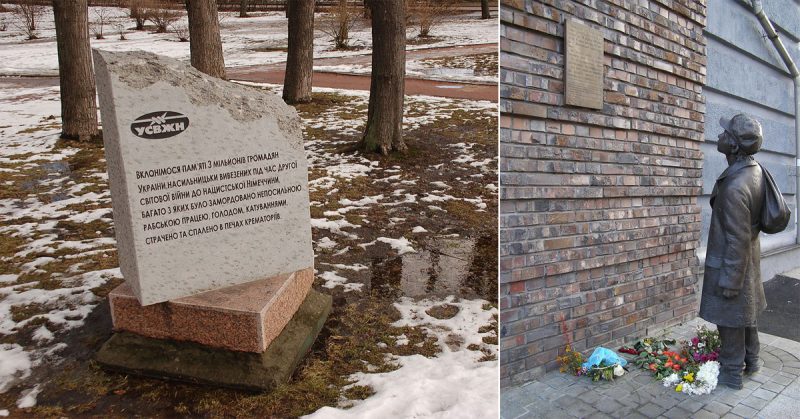Raisa Maistrenko clearly remembers Babi Yar. How could she not, the last survivor of the worst atrocity of World War II where 75 years ago Nazi executioners slaughtered 34,000 Jews.
They were gathered there, and sent down the path to death, she says, pointing to a Kiev ravine.
She was only three when the Nazis, aided by local collaborators, carried out the slaughter of mostly children, the elderly, and women, between the 29 and 30 September 1941.
Maistrenko is the Ukrainian capital’s last survivor of the nearly 309 people who escaped the killing, either by tumbling into the ravine before they were shot from behind, to lie atop thousands of the dead and later escape, or wore crosses to camouflage their true faith.
Now 78, her 18 relatives never escaped from Babi Yar – a site that today sits uneasily close to Kiev’s primary TV tower and is rarely remarked upon by today’s residents.
After entering Kiev, Nazi troops told the approximate 200,000 Jews who made up 25 percent of the city’s populace to pack their warm clothes, documents, and money and go to the ravine or be killed.
All of them decided to go because they assumed they would be relocated by train since the railway station was close by. No one could possibly presume there would be mass murder, Maistrenko said in a muted tone of voice.
Her father was drafted into the Soviet army. She lived with her mother in her grandparents’ apartment.
Meer, her grandfather, decided that the family should obey the Nazis’ commands and led the death march to Babi Yar.
Maistrenko’s non-Jewish grandmother, Tanya, volunteered to go with her granddaughter – and shortly after that rescued her.
Noise and horrible screams could be heard as the mournful procession neared the gravesite that was tightly cordoned off by Nazi soldiers – after getting in, there was no way out.
Perhaps already knowing their fate beforehand, her mother and sister still kept their grandmother moving because she had pain in her legs, Maistrenko said.
But her grandmother held Maistrenko firmly in her arms and did not let her go, Maistrenko explained.
At some point, they found themselves apart from the rest of the family. The troops were beating them with clubs to force them to the location where the shots were originating from, she said.
Mad and filled with horror, grandmother Tanya began shouting she was Russian while clinging to Maistrenko.
“A soldier tried to hit her with the end of his rifle, but my grandmother shielded her with her shoulder and dropped to the ground together with her,” Maistrenko recollects.
Her Grandmother stood up, repeatedly crossed herself and shouting “I am Russian” while at the same time forcing her way through the deluge of soon-to-be victims, the armed German troops and supporting Ukrainians.
They heard the shooting behind them, but her Grandmother did not look and kept sprinting until she fell tired among the graves in a cemetery close by.
Maistrenko said they hid there until sunset before travelling back home under darkness, France 24 reported.
Israeli President Reuven Rivlin met with his Ukrainian counterpart Petro Poroshenko at the administration building, ahead of an official memorial at the massacre site.
Other attendees include the presidents of Hungary, Germany, the European Union’s Donald Tusk, and a 100-strong group from New York’s World Jewish Congress.
